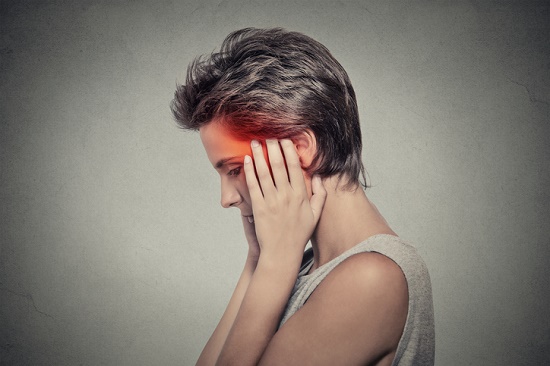
While it’s true that there is presently no scientifically-established method to cure tinnitus, researchers are hard at work to identify one. In the meantime, a range of tinnitus therapy options are available that can afford significant relief.
Think of it this way. When you have a headache, you take Tylenol despite the fact that it doesn’t “cure” your headache. Pain relievers merely make the pain diminish into the background so that it doesn’t impact your day. Similarly, tinnitus therapies can help decrease the severity of symptoms so that your tinnitus has minor impact on your daily life.
Given that everyone reacts to tinnitus in a different way, there’s no one-size-fits-all treatment. You’ll need to work with your provider to uncover the approach that is best suited for you.
Here are some of those options.
Tinnitus Treatment Solutions
If you experience tinnitus, you’ll want to discuss the following treatment options with your hearing care or healthcare professional.
Treatment of the underlying ailment
While most cases of tinnitus are not curable—and result from hearing loss or other non-reversible injury—certain cases are brought on by an underlying physical ailment. You’ll want to rule these out before seeking other treatment options.
Possible physical causes of tinnitus include jaw joint problems (temporomandibular joint, or TMJ dysfunction), too much earwax or any other blockages in the ear canal, head and neck injuries, and reactions to specific medications.
General Health And Fitness
The seriousness of tinnitus symptoms can vary depending on all-around health. Taking steps to improve general well-being is, consequently, something tinnitus patients can get started on immediately to decrease the intensity of symptoms.
Each individual is different, and what works for someone else might not be right for you. The idea is to experiment with different activities to learn what is most effective.
Strategies that have shown promise include instituting a healthy diet, getting plenty of physical exercise, meditating, and participating in activities like cycling, which can conceal the sounds of tinnitus.
Hearing Aids
Tinnitus is often associated with hearing loss and hearing damage. In response to reduced stimulation from external sound, the brain undergoes maladaptive changes that bring on the perception of tinnitus.
By strengthening the amount of external sound, hearing aids can help mask the tinnitus, making the sounds of tinnitus less noticeable. Hearing aids also provide increased sound stimulation to the brain, which is thought to be neurologically beneficial.
Sound Therapy
Sound therapy is essentially the delivery of sound in the form of white noise, pink noise, or nature sounds to decrease the perceived burden or severity of tinnitus.
Sound therapy operates by masking the tinnitus and also by teaching the brain to reidentify the sounds of tinnitus as insignificant. This joint effect can lessen the short and long-term severity of tinnitus.
Sound therapy can be delivered through special tabletop devices, but also through portable media products and even through hearing aids. Medical-quality sound therapy incorporates custom sounds that match the pitch of the individual’s tinnitus for the most effective outcomes.
Behavioral Therapies
Recall that tinnitus is the sense of sound in the brain when no outside sound is present. The affliction is, therefore, very subjective, and each person responds a unique way.
In fact, whether or not the person perceives tinnitus as debilitating or minor is largely as a consequence of emotional reactions and not to the loudness or pitch of the tinnitus. That’s why cognitive/behavioral approaches to tinnitus therapy have been demonstrated to be exceptionally effective.
A number of techniques exist, including Mindfulness-Based-Stress-Reduction (MBSR) and Tinnitus-Retraining-Therapy (TRT), which merges cognitive-behavioral-therapy with sound therapy.
Drug Therapy
Although there are no current FDA-approved medications for tinnitus, anti-anxiety and antidepressant prescriptions are regularly used to treat the behavioral responses to tinnitus. These drugs do not appear to impact tinnitus itself, but may furnish much-needed relief if deemed appropriate by your doctor.
Experimental Therapies
The search for a tinnitus cure is continuous. Several experimental therapies are in development or testing and new methods become available each year. If your tinnitus is severe, and you’ve achieved very little benefit from existing therapies, you could be a candidate for one of these cutting edge treatment options.
Visit the Experimental Therapies webpage at the American Tinnitus Association website for additional details.
Find Relief For Your Tinnitus
Tinnitus is currently being aggressively investigated, with brand new findings and prospective treatment options introduced every year. Even now, there are several promising treatments that, while not providing a cure, can offer considerable relief. You owe it to yourself to check out these options, remain positive and persistent in your tinnitus care, and work with your provider to modify your treatment plan for the greatest results.